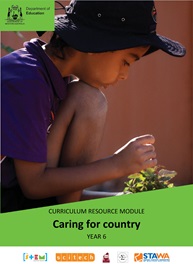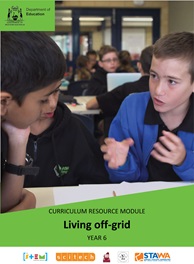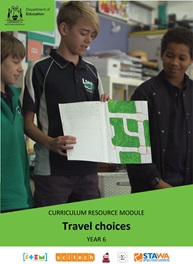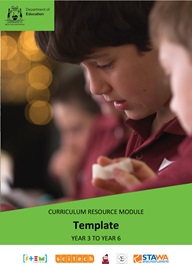
Resources
Year 6
On this page
Curriculum resource modules
The curriculum resource modules are intended for teachers interested in integrated STEM teaching and learning approaches that engage students in collaborative learning to solve authentic, real world problems.

Caring for country
This module explores the changes made to natural ecosystems through weather events or human activity and encourages students to develop strategies to restore plant communities of local provenance at one of these sites to increase the diversity of species that can be supported.

Living off-grid
The purpose of this module is to engage students in creating relatively simple, environmentally sustainable solutions that will generate energy and produce clean drinking water for living off-grid. Students design and build their solutions as examples of ways to provide these essential services in a developing country, in a developed country in an emergency, camping or for when these services are not available. The module also aims to provoke students to reflect on their impact on the environment and raise their awareness about the appeal of sustainably living off-grid.

Travel choices
There are several issues a school might face involving traffic, including environmental considerations, congestion and vehicle security. There are also more general community issues associated with local travel habits that relate to health, safety, public transport availability and local government planning. Evidence from research and community awareness-raising can assist in identifying and addressing challenges that can arise from the travel choices people make.
Resource template

Resource template Year 3 to Year 6
A STEM learning module should encourage learning that is student-led and teacher-facilitated, and have an open-ended problem-solving approach. Problem solving involves an intellectual struggle that provides opportunities for higher-order thinking, reasoning and creativity.